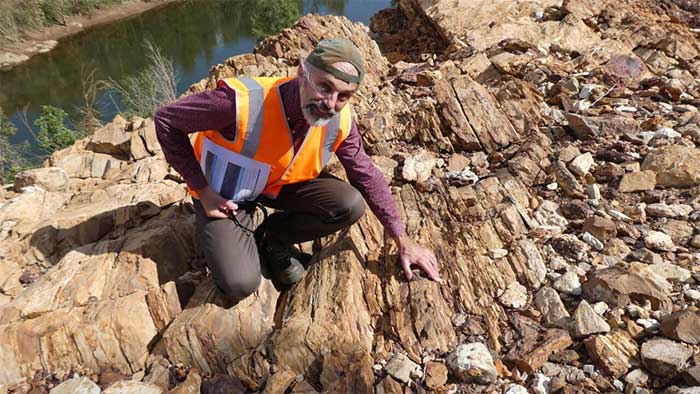Two scientists from the Australian National University have discovered molecular traces of the microorganism Protosterol Biota while analyzing 1.6 billion-year-old rocks obtained from Northern Australia.

Professor Jochen Brocks examines 1.64 billion-year-old sediments for Protosterol Biota molecules at Barney Creek, Northern Australia. (Source: Reuters/Screenshot)
Australian scientists have recently published research on the existence of a microorganism that lived in Earth’s waters billions of years ago, suggesting that it may be “the first predators on Earth.”
The study, conducted by a team of researchers from the Australian National University (ANU), reveals that this microorganism, scientifically named Protosterol Biota, possesses characteristics of hunting and consuming other bacteria.
Scientists Benjamin Nettersheim and Jochen Brocks from ANU found molecular traces of Protosterol Biota during their analysis of 1.6 billion-year-old rocks collected from Northern Australia.
According to the researchers, Protosterol Biota belongs to the eukaryotic domain, which is prevalent in marine ecosystems worldwide and may play a key role in the formation of these ecosystems.
Modern eukaryotic organisms include fungi, plants, animals, and unicellular organisms.
All eukaryotic life forms are believed to have originated from a common ancestor known as the Last Eukaryotic Common Ancestor (LECA), which existed over 1.2 billion years ago.



















































